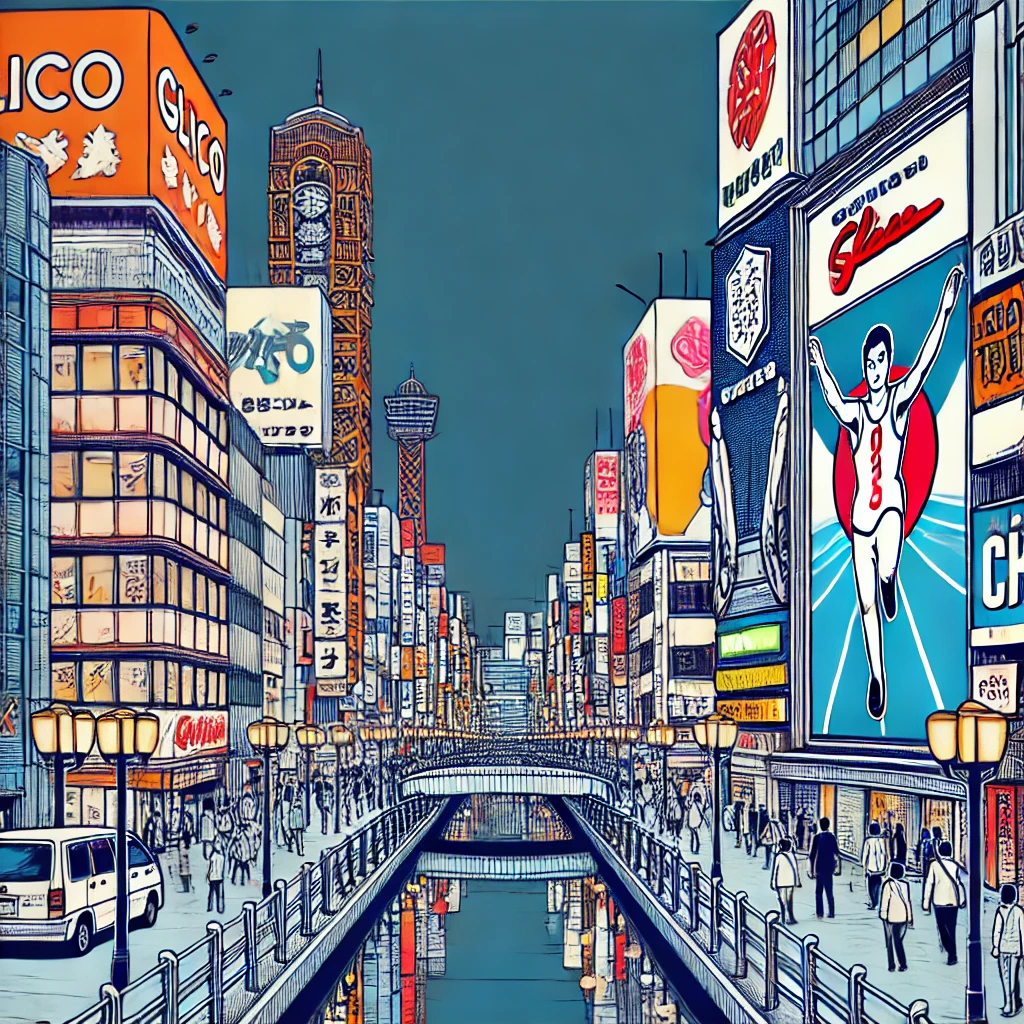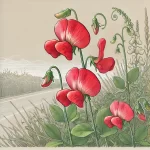悲しい色やね -OSAKA BAY BLUES- [Kanashī Iro yane / Osaka Bay Blues]
上田正樹 [UEDA Masaki]
Words : 康珍化 [KAN Chinfa]
Music : 林哲司 [HAYASHI Tetsuji]
“Kanashii Iro Yane” is a single by Masaki Ueda, released in 1982. Initially, the title was planned to be “Osaka Bay Blues,” but it was eventually changed to “Kanashii Iro Yane,” with “Osaka Bay Blues” added as a subtitle.
The song is set in the city of Osaka wiki. Songs set in regional cities are rare, but I enjoy explaining various details. Another example would be “Blue Light Yokohama.”
Osaka is a large city that contrasts with Tokyo. While Tokyo is the center of the capital region, Osaka is the hub of the Kansai area in western Japan, which includes cities like Osaka, Kyoto, and Kobe.
Compared to people from Tokyo, Osaka people are friendlier, more passionate, a bit rough, and love jokes.
Osaka people speak the Kansai dialect, which is used in the Kansai area, with similar dialects spoken in neighboring regions. Kansai dialect can be broadly considered the representative dialect of western Japan.
The lyrics of this song are a bit unusual as they use Kansai dialect. Due to the nature of the Japanese language, dialects tend to sound more conversational, and when combined with such a passionate melody, they become even more emotional. It truly captures the feeling of the blues.

Masaki Ueda, originally from Kyoto (less known, but Kyoto is Japan’s blues capital), began his career in a serious blues band.
にじむ街の灯を ふたり見ていた
niji mu machi no hi o futari mite ita
- 滲む(にじむ) [nijimu] : blur
- 街(まち) [machi] : city
- 灯(ひ) [hi] : light
- ふたり [futari] : two people
- 見る(みる) [miru] : see
(translation) “We watched the blurred city lights together.”
The city lights are blurred by tears.
桟橋に止めた 車にもたれて
san bashi ni tometa kuruma ni motarete
- 桟橋(さんばし) [sanbashi] : pier
- 止める(とめる) [tomeru] : stop
- 車(くるま) [kuruma] : car
- もたれる [motareru] : lean on
(translation) “Leaning against the car parked at the pier.”
The dialect hasn’t appeared yet.
泣いたらあかん 泣いたら
naitara akan naitara
せつなくなるだけ
setsunaku naru dake
- 泣く(なく) [naku] : cry
- あかん [akan] : no good
- 切ない(せつない) [setsunai] : painful
- なる(なる) [naru] : become
- だけ [dake] : only
(translation) “Don’t cry, don’t cry,
it’ll only hurt more.”
“あかん / akan” is a well-known Kansai dialect word. It’s a variation of “いかん / ikan” used in eastern Japan, but “akan” is extremely common in Kansai. In formal language, “いけない / ikenai” (=no good) would be used. Aside from expressing prohibition, it can also be exclaimed like “OMG” when something goes wrong.
HOLD ME TIGHT 大阪ベイブルース
hold me tight ōsaka bei burūsu
おれのこと 好きか あんた聞くけど
ore no koto suki ka anta kiku kedo
HOLD ME TIGHT そんなことさえ
hold me tight sonna koto sae
わからんようになったんか
wakaran yō ni natta n ka
- 俺(おれ) [ore] : I (male)
- 好き(すき) [suki] : like
- あんた [anta] : you
- 聞く(きく) [kiku] : ask
- そんな [sonna] : such
- こと [koto] : thing
- わかる(わかる) [wakaru] : understand
(translation) “hold me tight osaka bay blues.
you ask me if I love you,
you can’t even understand something like that anymore?”
“大阪ベイブルース” = Osaka Bay Blues. This Japanese writing might make me think of the baseball legend “Babe Ruth”.
Historically, Osaka Bay was the gateway to Japan when Kansai was the capital region.
“Ore” is a first-person pronoun used by men. Since the phrase “おれのこと好きか / ore no koto suki ka” is a quotation, it becomes clear that the protagonist in this story is a woman. “私のこと好き? / watashi no koto suki? = Do you like me?” is a phrase worth memorizing. (It also appeared in “Toshishita no Otokonoko.”)
“あんた / anta” is a casual version of “あなた / anata” (you), which is used across Japan but often associated with older people. When a woman from Osaka uses it, it has a particularly “Osaka-like” vibe.
The fourth line is full of Kansai dialect.

大阪の海は 悲しい色やね
ōsaka no umi wa kanashī iro yane
さよならをみんな ここに捨てに来るから
sayonara o minna koko ni sute ni kuru kara
- 大阪(おおさか) [ōsaka] : Osaka
- 海(うみ) [umi] : sea
- 悲しい(かなしい) [kanashī] : sad
- 色(いろ) [iro] : color
- さよなら [sayonara] : goodbye
- みんな [minna] : everyone
- ここ [koko] : here
- 捨てる(すてる) [suteru] : throw away
- 来る(くる) [kuru] : come
(translation) “The sea of Osaka is a sad color
because everyone comes here to leave their goodbyes.”
“悲しい色やね / kanashī iro yane” is the title phrase. The word “や / ya” is a basic element of Kansai dialect and broader western Japan dialects. In western Japan, the Tokyo equivalent of “だ / da” becomes “や / ya.” So in a typical Tokyo dialect song, this would be “悲しい色だね / kanashī iro da ne.”
The “ね / ne” is a sentence-ending particle that adds an emotive nuance.
Such touching lyrics!

夢しかないよな 男やけれど
yume shika nai yo na otoko ya keredo
一度だってあんた 憎めなかった
ichido datte anta nikume nakatta
- 夢(ゆめ) [yume] : dream
- しか [shika] : only
- ない [nai] : There isn’t
- ような [yō na] : like
- 男(おとこ) [otoko] : man
- 一度も..ない(いちどもない) [ichido mo nai] : never
- 憎む(にくむ) [nikumu] : hate
(translation) “You are a man with nothing but dreams,
but I never once hated you.”
Notice the use of “や / ya” again.
He’s a dreamer, a man with no stability, but despite that, she couldn’t hate him.
逃げたらあかん 逃げたら
nigetara akan nigetara
くちびるかんだけど
kuchibiru kan dakedo
- 逃げる(にげる) [nigeru] : run away
- 唇(くちびる) [kuchibiru] : lips
- かむ(かむ) [kamu] : bite
(translation) “Don’t run away, don’t run away,
but I still bite my lips.”
HOLD ME TIGHT 大阪ベイブルース
hold me tight ōsaka bei burūsu
河はいくつも この街流れ
kawa wa ikutsu mo kono machi nagare
恋や夢のかけら
koi ya yume no kakera
みんな海に流してく
minna umi ni nagashite ku
- 川・河(かわ) [kawa] : river
- いくつも [ikutsu mo] : many
- 街(まち) [machi] : city
- 流れる(ながれる) [nagareru] : flow
- 恋(こい) [koi] : love
- かけら [kakera] : fragment
- 流す(ながす) [nagasu] : send
(translation) “hold me tight osaka bay blues.
The rivers flow through this city,
taking away all the fragments of love and dreams into the sea.”
Osaka is home to many rivers, and historically, it has been known as the “water city” due to its well-developed port facilities and river transportation system.
HOLD ME TIGHT 大阪ベイブルース
hold me tight ōsaka bei burūsu
今日でふたりは終りやけれど
kyō de futari wa owari ya keredo
HOLD ME TIGHT あんたあたしの
hold me tight anta atashi no
たったひとつの青春やった
tatta hitotsu no seishun yatta
- 今日(きょう) [kyō] : today
- 二人(ふたり) [futari] : two people
- 終わり(おわり) [owari] : end
- あたし [atashi] : I (female)
- たった [tatta] : only
- 一つ(ひとつ) [hitotsu] : one
- 青春(せいしゅん) [seishun] : youth
(translation) “hold me tight osaka bay blues.
Today is the end for us, but
hold me tight,
you were my one and only youth.”
“や / ya” appears twice in this section.
“あたし / atashi” is a casual form of “わたし / watashi,” typically used by women.
“青春 / seishun” refers to the youthful, energetic time of one’s life, and it carries a positive connotation.

For learners of Japanese, Kansai dialect may not be commonly studied, but it’s one of the most prominent dialects in Japan. Knowing phrases like “あかん / akan” and “や / ya” is certainly useful!
This song is a masterpiece that blends refined music with heavy Kansai dialect and Ueda’s husky, bluesy voice. The key change part is seriously amazing! The composer Tetsuji Hayashi and lyricist Chinfa Kan (a second-generation Korean-Japanese) have produced numerous hits together. However, when Kan submitted Kansai dialect lyrics to Hayashi, who had composed the music expecting English lyrics, Hayashi was quite surprised. Hayashi’s music can be described as city pop, with a sophisticated, urban sound, but Kan’s lyrics are highly passionate, with a slightly rustic feel. Perhaps that’s what captures the essence of Osaka.
YouTube Search “Kanashii Iro Yane (Osaka Bay Blues) – Masaki Ueda”
Thanks for reading! Feel free to comment if you have any feedback or questions.
Follow me on X.




This website contains practical guidance about the path to becoming a IT infiltrator.
Data is shared in a easily digestible manner.
You may acquire several procedures for breaking through security.
Besides, there are specific samples that exhibit how to perform these proficiencies.
how to learn hacking
All information is frequently refreshed to keep up with the modern innovations in information security.
Special attention is centered around everyday implementation of the absorbed know-how.
Consider that any undertaking should be implemented properly and with good intentions only.